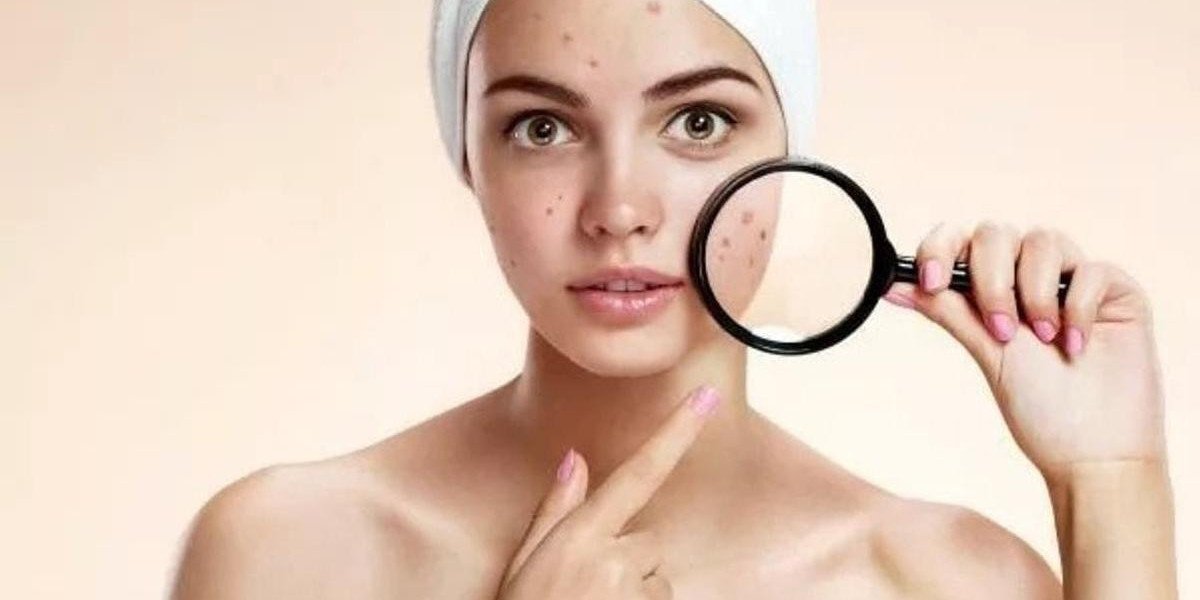Acne is a common skin condition that affects millions of people worldwide, regardless of age, gender, or skin type. Despite its prevalence, there are many misconceptions surrounding acne that can lead to confusion, frustration, and even worsen the situation. Today, we're debunking the top 10 acne myths to help you understand the truth behind this skin condition. If you’re struggling with acne or looking for professional advice, consider reaching out to experts like estheticsbymonica, who specialize in skincare and acne treatments.
Myth 1: Acne is Caused by Poor Hygiene
One of the most widespread myths is that acne is caused by poor hygiene or dirty skin. While it's essential to keep your skin clean, excessive washing or scrubbing can actually irritate your skin, leading to more acne. Acne is primarily caused by a combination of factors such as excess oil production, clogged pores, and the presence of acne-causing bacteria. Washing your face too often can strip your skin of its natural oils, leading to an imbalance that may make acne worse.
To prevent acne, wash your face twice a day with a gentle cleanser. Over-washing or using harsh products can harm the skin's protective barrier.
Myth 2: Acne Only Affects Teenagers
While it’s true that teenagers are more likely to develop acne due to hormonal changes during puberty, acne can affect people of all ages. In fact, adult acne is becoming increasingly common, especially in women. Hormonal fluctuations due to pregnancy, menstruation, and even stress can trigger acne in adults.
So, if you are an adult dealing with acne, you’re not alone. Seek professional help if your acne persists, and explore treatments that are suitable for your age and skin type. Estheticsbymonica offers personalized acne treatment solutions that cater to both teens and adults.
Myth 3: Sun Exposure Clears Up Acne
Many people believe that spending time in the sun can help dry out pimples and improve acne. While a little sun exposure may provide temporary relief by drying out existing breakouts, excessive sun exposure can ultimately damage your skin and worsen acne. UV rays can cause inflammation, which can lead to more pimples or even premature aging.
Furthermore, certain acne medications, such as retinoids and benzoyl peroxide, can make your skin more sensitive to the sun, increasing the risk of sunburn. Always wear sunscreen, especially if you're on acne treatment.
Myth 4: Acne is Only Caused by Diet
While diet can play a role in acne, it is not the sole factor. Acne is primarily influenced by hormones, genetics, and other environmental factors, not just food. That said, some studies suggest that certain foods, like dairy or high-glycemic-index foods (e.g., sugary snacks and refined carbohydrates), may worsen acne in some individuals.
Maintaining a balanced diet rich in fruits, vegetables, and lean proteins can promote healthy skin. If you suspect that specific foods are triggering your acne, consider speaking with a dermatologist or skincare expert like estheticsbymonica to tailor a diet plan that works for your skin.
Myth 5: Popping Pimples Helps Them Heal Faster
Many people are tempted to pop their pimples in an attempt to speed up the healing process, but this can actually make things worse. Popping pimples can lead to increased inflammation, infection, scarring, and the spreading of bacteria to other areas of the skin.
Instead of popping pimples, use spot treatments or consult with a skincare professional who can help with safe, targeted treatments for acne.
Myth 6: Acne is Only Caused by Oil
While excess oil is a contributing factor to acne, it’s not the only cause. Acne can also develop due to clogged pores, hormonal imbalances, bacterial growth, and inflammation. Overactive sebaceous glands produce more oil, which can mix with dead skin cells, clogging pores and creating an ideal environment for acne-causing bacteria.
To prevent acne, it’s essential to keep your skin clean and exfoliate regularly, but also to avoid over-drying it. A balanced skincare routine is key.
Myth 7: Makeup Causes Acne
Many people believe that wearing makeup leads to acne, but this isn’t entirely true. Non-comedogenic (non-pore-clogging) makeup products are designed to avoid acne outbreaks, and when used properly, they don’t cause acne. However, wearing makeup that is not suited for your skin type or not removing makeup properly at the end of the day can contribute to breakouts.
If you have acne-prone skin, opt for makeup that’s labeled as non-comedogenic. Always make sure to cleanse your skin thoroughly before bed to remove makeup and impurities.
Myth 8: Stress Doesn't Affect Acne
Stress is often blamed for many health issues, and acne is no exception. While stress doesn’t directly cause acne, it can trigger hormonal fluctuations that lead to an increase in oil production and breakouts. During periods of high stress, the body releases more cortisol, which can make existing acne worse and cause new breakouts.
Managing stress through relaxation techniques like yoga, meditation, or exercise can help reduce the impact stress has on your skin. A skincare professional like estheticsbymonica can offer treatments designed to calm your skin and help reduce the appearance of stress-related acne.
Myth 9: Acne Treatments Will Work Overnight
Acne treatments take time to show results, and expecting overnight miracles can lead to frustration. While some treatments may start to show improvement within a few days, it generally takes weeks to see noticeable changes, especially if you are using topical treatments like benzoyl peroxide or salicylic acid.
Consistency is key when it comes to acne treatment. Stick to a skincare routine and give your products time to work. If you're not seeing results, consult with a dermatologist to adjust your treatment plan.
Myth 10: Acne Is Permanent
Many people believe that acne is a lifelong condition, but that’s not the case. While some individuals may experience acne throughout their life, most people see improvements or even complete resolution after the teenage years. Even for adults who continue to struggle with acne, treatments and lifestyle changes can significantly improve the condition.
Acne treatment options have evolved over the years, and there are now more effective methods available to help manage and treat acne. Whether it’s through prescription medications, topical treatments, or professional skincare services, there’s hope for those suffering from acne.
Conclusion
Acne is a multifaceted condition, and understanding the truth behind common myths can help you make informed decisions about your skincare routine. From proper hygiene to diet, treatment options, and professional advice, debunking these myths is the first step toward healthier, clearer skin. If you're dealing with persistent acne, consulting a skincare expert like estheticsbymonica can help you get a personalized treatment plan tailored to your specific needs. Don’t let myths hold you back—understanding acne and its true causes will help you on your journey to clearer skin.








